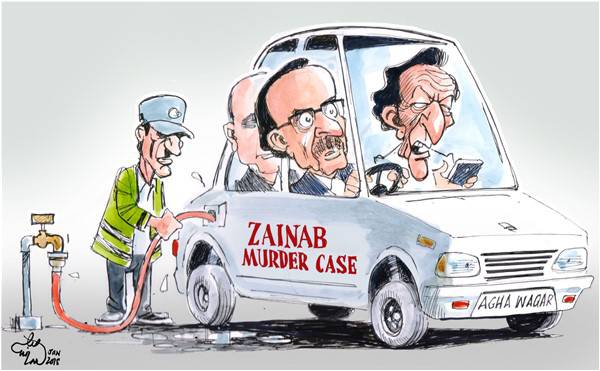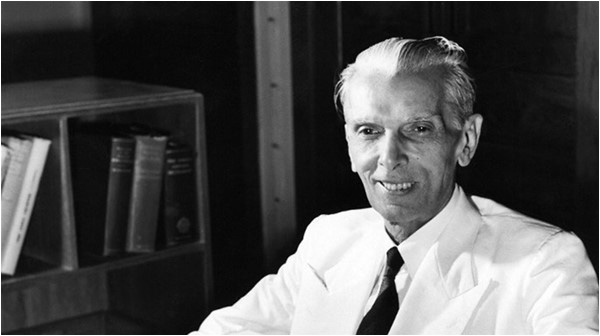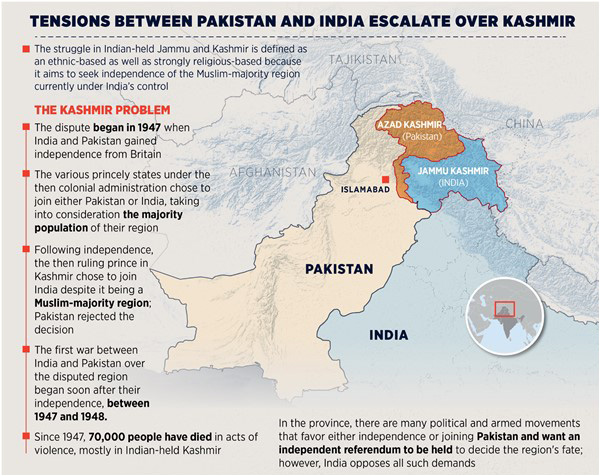
Capitulating to religionists
Sir,
My father came here believing in Jinnah’s exhortation which promised, “that [religion, caste, creed] has nothing to do with the business of the state”. He was like the millions of people who migrated not just to escape religious and economic suppression but to seek peace and harmony as, “free” citizens and not just as a single persuasion, Islam.
Of the Islamists inimical to Pakistan and its founders’ aspirations, some remained behind, cursing the fledgling state and leader. Concerned at Nehru’s elimination of the feudal class and the secular form that was to be India’s constitutional state, and in order to remain consequential, our rudderless feudals and migrant mullahs cosied up with the only power available. And the “establishment” came to be. Pakistan was hijacked well before Liaquat Ali Khan’s assassination.

In the early 1960s some may recall the Jamaat-e-Islami, the precursor of today’s hydra, being called the establishment’s “B Team”. It has never looked back. Today we face the consequences of covert support and overt capitulation to a subversively created theocracy. Seventy years later and thousands needlessly dead, we have neither East Pakistan nor is Kashmir free. Nor is there Unity, Faith or Discipline. Much of the country is ungoverned; some of it is totally ungovernable. Every tenet of the glorious revelations of Islam, the principles and ideals and examples laid down by the Holy Prophet (PBUH) have been converted into dogma. Love for Allah (swt) and a religion of peace has translated into bigotry and pathologic hatred for all His creations who do not conform to a narrow version of religion. Essential to that is a rapidly breeding, illiterate, population with a bleak future and with little here to live for, focussing on violent death for the promise of a brilliant afterlife.
Sixty some years later the splinter factions of religiosity have coalesced for long enough to ensure a retrogressive theocracy. With repeated, possibly deliberate, failure to establish the writ of the State under constitutional law, Pakistan today is a nuclear time-bomb poised over a country of brainless serfs.
Zia established selective manipulation of religion as infinitely more valuable than brute force alone. In time most political parties, largely selectees of the establishment itself, have added this component to their armamentarium. IK raised the bar on what the MQM started: holding the nation hostage. He made no secret then, or now, of his hopes for the same earthly providence to hand him the PM’s seat and head!
Rabble rousing always was the forte of our religionists who, till now, had not managed to acquire electoral approval. Again, the incompetent civilian government of the day has been ‘pleased’ to capitulate to those who have brainwashed ignorant and gullible masses into insurrection, sedition, by twisting the entire message of Islam into a mantra of hate!
I pray for the brave judges of the Supreme Court who have castigated the dangerous trend that has been set. Once released, the genie, we bred as our keep, does not return to the bottle easily. For the future of Jinnah’s Pakistan as a nation of relevance and acceptance I hope that our powers that be are not stupid enough to ignore this strident wake-up call. Let it already not be too late for the sacrifices of our forebearers to be in vain!
Dr Mervyn Hosein,
Karachi.
Sanghar campus
Sir,
Shaheed Benazir Bhutto University established a Sanghar campus two years ago. Within a short passage of time, more than five hundred students have been enrolled and all the basic facilities are being provided.
Before this, students had to go to bigger cities for higher education. It was difficult for them to live and get accommodation there. Most students could not get admissions because their parents were unable to support them. Girls are not allowed to move away from home, which limits their ability to go to university in another city.
The literacy rate in Sanghar is 30% and that of Karachi is 63%. I request the government build campuses all over Sindh.
Rasheed Mangrio,
Hyderabad.
Reader view
A Kashmir roadmap
Every year Pakistan observes Kashmir Solidarity Day, or Kashmir Day on February 5. It is in observance of Pakistan’s support of and unity with the people of Indian-Occupied Kashmir (IoK).
In 1947, India took over the princely states of Hyderabad and Junagadh on the basis that they were Hindu-majority areas and had a geographical connectivity with India, but in the case of Kashmir, where a majority population was Muslim and the ruler was a Hindu, the same principle was not applied.
For the past 70 years, three successive generations have been struggling for ‘Azadi’. India is trying to change the demographics of Kashmir by settling Hindu pandits in the state. In 1947, there were 79 percent Muslims in Kashmir, which has reduced to 68 percent by 2016. Kashmiri youth is writing a new chapter in the freedom struggle following the killing of Burhan Wani.

In the last 27 years, 107,591 children have been orphaned, more than 22,000 women have been widowed and 10,717 women have been raped by the Indian security forces in Kashmir
In the last 27 years, 107,591 children have been orphaned, more than 22,000 women have been widowed and 10,717 women have been raped by the Indian security forces in Kashmir.
Tens of thousands of people have gone missing and one out of every six persons has been tortured by Indian security forces in IoK.
Since 1990 more than 200,000 Kashmiris have been tortured. Indian-occupied forces have used more than two million pellets to control street protests in IoK. Since July 2016, over 6,000 Kashmiris have completely lost their vision and 17,000 have been injured by the use of pellet guns. However, Pakistan cannot achieve the desired results by only highlighting atrocities to the world.
The objective of this day of solidarity should not only be to highlight atrocities against unarmed Kashmiris, but also look for solutions to the Kashmir dispute. Firstly, the Simla Agreement is one cause for the stalemate. Pakistan could consider revising this agreement. Pakistan needs to provide Kashmiris opportunities to speak at international forums. Pakistan should broaden its vistas by projecting the Kashmir issue, not only in the US and the EU, but in China, Russia, South Africa and other parts of the world as well.
The International Court of Justice told the world during the case between Namibia and South Africa that UN resolutions are binding in nature. The UN charter, Articles 33 and 36 have failed to resolve the Kashmir dispute, hence Article 6 of UN charter should be applied in resolving the Kashmir dispute. Hence Pakistan should also knock at the door of the ICJ in order to resolve the Kashmir issue. The issue of mass graves in the IoK should be highlighted at international forums and should be referred to the international criminal court by Pakistan.
Academia can play a vital role in highlighting the Kashmiri freedom struggle at the international level. Kashmir study centres should be established in Azad Kashmir, Islamabad and in the capitals of all provinces.
Parliament of Pakistan should take a lead in highlighting the Kashmir cause and sensitise the world through proactive outreach. The National Assembly speaker and the Senate chairman should highlight the issue with their counterparts in different countries, while the human rights committees of both houses and the Foreign Affairs Committee should take up the issue with their respective committees across the world.
Lastly, the Kashmiris should learn from the experiences of the Palestine Liberation Organisation (PLO) and ensure their participation in international conferences and forums to present their case and distribute the relevant literature to highlight the human rights violations in the occupied territory. A national signature campaign to sensitise the world to the brutalities of Indian occupation forces can send a strong message to the international community.
To conclude, Pakistan had always been on the forefront risking its security to support Islamic countries whenever some issue emerged there, but most Muslim countries focused on their bilateral relations with India when Pakistan needed their support on Kashmir. It is high time that Pakistan must ensure a revival of the Organization of Islamic Council with an aim to use this platform to put pressure on the international community to resolve the dispute.
Khurram Abbas,
Research Officer,
Policy Research Institute,
Islamabad.

